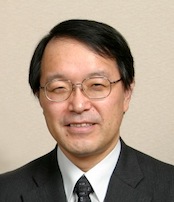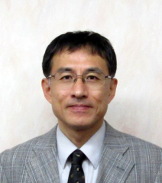About the Center
Summary
- Date of Establishment
- April 1, 2013
- Department Name
- Graduate School of Information Science and Technology
- Facility Name
- Social ICT Research Center
- Affiliation
- Education and Research Facility, Graduate School of Information Science and Technology
- Establishment Pursuant to
- Article 44 of The University of Tokyo's Basic Organizational Guidelines
- Date Department Was Approved
- November 15, 2012 at the Faculty Meeting
Objective of the Center
Society strongly demands revolutionary changes in the social system and creation of new services through high-level use of information and communications technology (ICT). The goal is to resolve urgent issues in today's society and realize its potential. We refer to this area as social ICT and consider it the new frontier of information science and engineering. Based on this thinking, we aim to offer designs that provide value to people by considering cities, regions, companies, organizations, governments, services, and businesses as information systems.
Led by The University of Tokyo's Graduate School of Information Science and Technology, the Social ICT Research Center was established to promote education and research that offers creative design and realization of new social systems and services, with cutting-edge information science and engineering studies at its core, thereby acting as a leader in social innovation. In collaboration with the University's other entities that partake in the University's Social ICT Global Creative Leader Development Program, as well as with industry, government, and the private sector, the Center aims to develop highly skilled professionals, leverage personnel, and create opportunities.
Development of information technology that caters to society's needs Professor Masatoshi Ishikawa (Dean of the Graduate School of Information Science and Technology)
 Since entering the 21st century, we have become more dependent on information technology. While we demand effective and efficient use of information technology, we also expect development of technology that matches social needs as the scale, application range, and complexity of related technologies grow. The Social ICT Research Center integrates the technologies available at the Graduate School of Information Science and Technology. The objective is to offer a place for value creation through effective implementation of information technology to society. The establishment was realized by galvanizing support throughout the University. The Center aims to create new value and foster the development of future professionals with expertise in interdisciplinary system design. To achieve this goal, the Center grounds itself in the design of enterprise architecture of human organizations, based on computers and Internet system architecture; application of cryptography and authentication technologies to address security issues in society as a whole; and creation of systems that can be leveraged in practice, such as extraction of new knowledge from big data. We invite you to participate in our quest to create new value by being the first to experience and review the formative future information society that the Center strives to create.
Since entering the 21st century, we have become more dependent on information technology. While we demand effective and efficient use of information technology, we also expect development of technology that matches social needs as the scale, application range, and complexity of related technologies grow. The Social ICT Research Center integrates the technologies available at the Graduate School of Information Science and Technology. The objective is to offer a place for value creation through effective implementation of information technology to society. The establishment was realized by galvanizing support throughout the University. The Center aims to create new value and foster the development of future professionals with expertise in interdisciplinary system design. To achieve this goal, the Center grounds itself in the design of enterprise architecture of human organizations, based on computers and Internet system architecture; application of cryptography and authentication technologies to address security issues in society as a whole; and creation of systems that can be leveraged in practice, such as extraction of new knowledge from big data. We invite you to participate in our quest to create new value by being the first to experience and review the formative future information society that the Center strives to create.
Towards creating methodologies for social ICT Professor Masami Hagiya (Center Director)

I am Hagiya. I have been the Center Director since October 1, 2014. When I was the Dean of the Graduate School, I helped establish the Center. Until September 30, I acted as the Center's Deputy Director. Recently, I was appointed by Mr. Kuniyoshi, the previous Center Director, to take responsibility in running the Center after him. I ask for your support as I continue to make my best efforts to foster the Center's growth. The Center's mission is to redesign society with ICT at its core. In doing so, we must formulate methodologies. In redesigning society, we must not only introduce ICT and build an information system, but must also restructure human organizations. Moreover, to follow through with such redesign, we require strategies to direct personnel and organizations. I believe the Center's ultimate goal is to systemize areas that previously relied on individual efforts and align them with a set of methodologies. Next, we must reflect the fruits of these efforts in the Graduate School's education. However, needless to say, we cannot simply wait for this to happen. The GCL Education Program, which has strong ties with the Center, is taking active steps. The Center's core purpose is research. However, it has been assumed from the inception of both organizations that research would be conducted through educational activities at GCL and with students participating. The Center and GCL are two pillars of a single unit. We hope that the Center's faculty will actively participate in GCL and drive the activities of both organizations in a balanced way.

